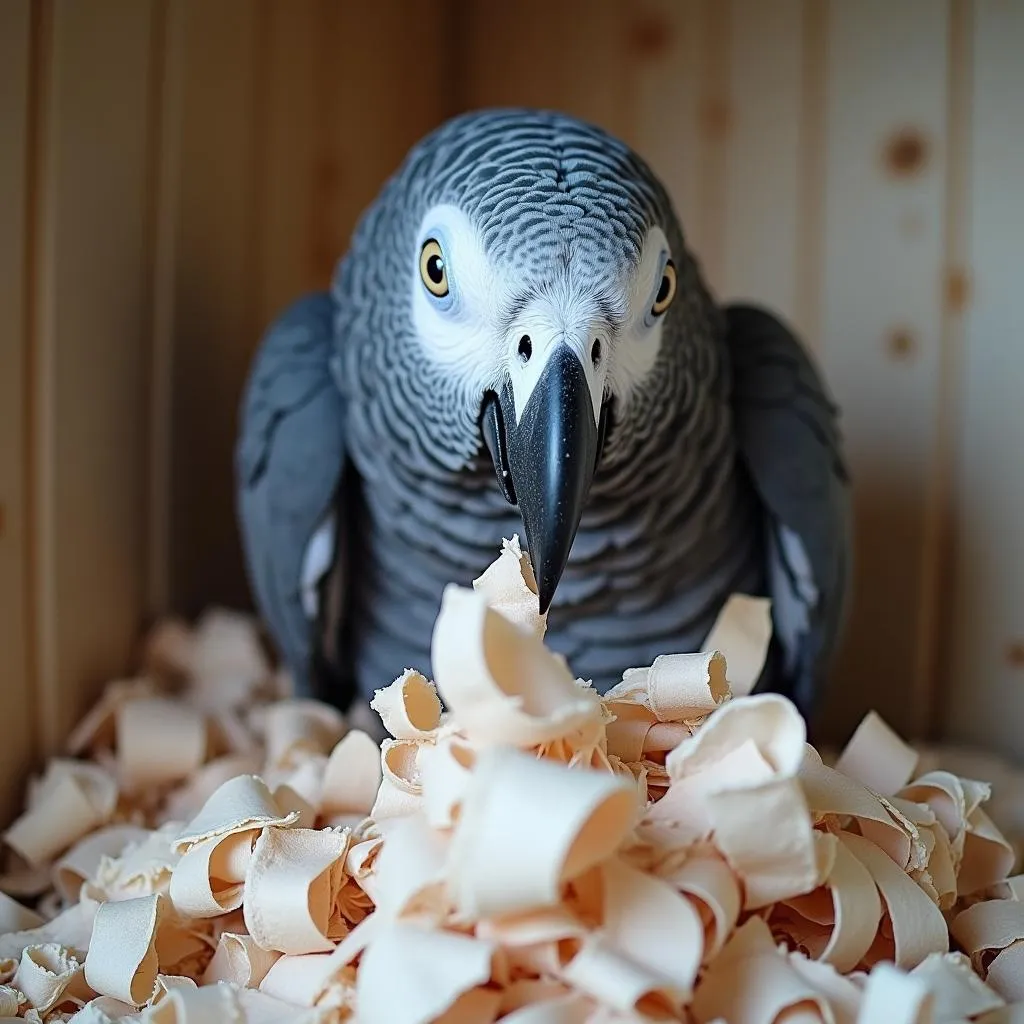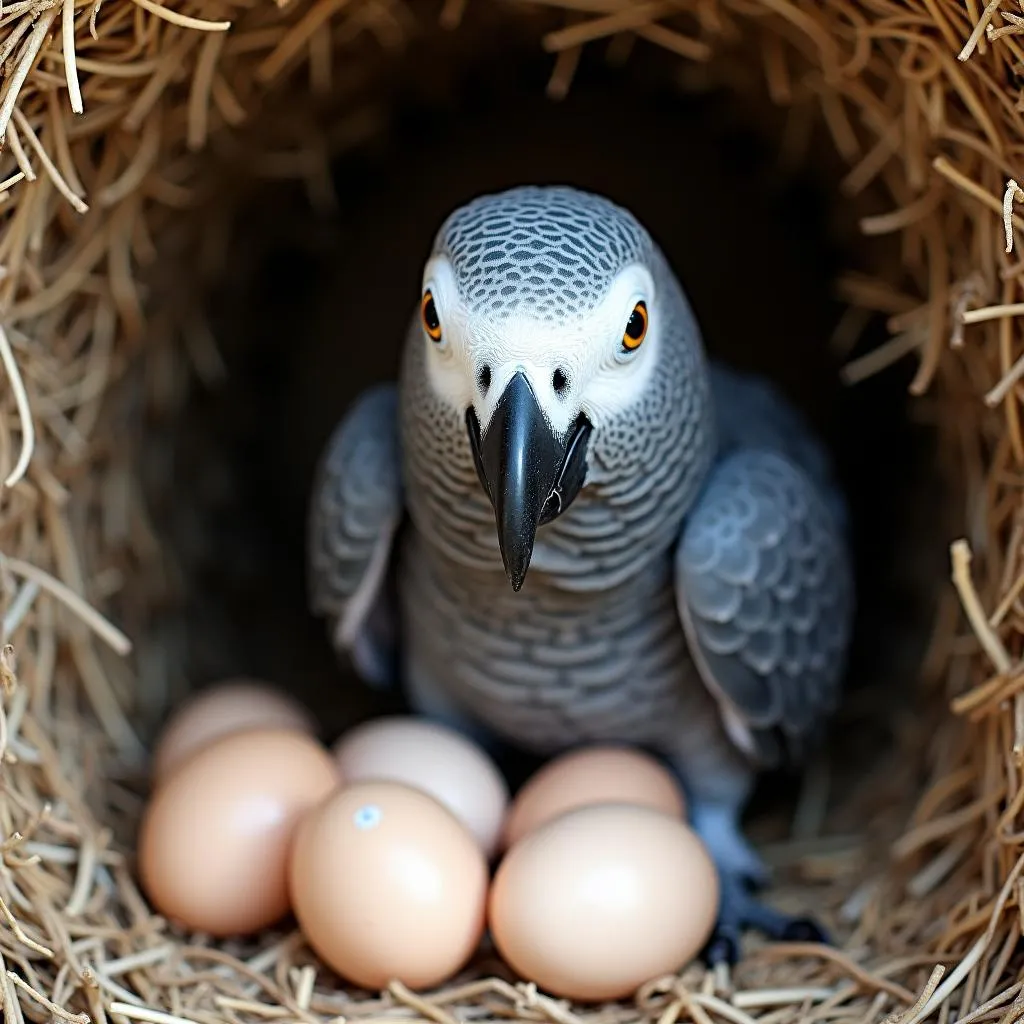African Grey Parrot Breeding Season: A Comprehensive Guide
The African Grey Parrot Breeding Season is a fascinating period marked by unique behaviors and important considerations for parrot owners. Understanding this period is crucial for the well-being of these intelligent and sensitive creatures.
Factors Influencing African Grey Parrot Breeding Season
Several factors influence when your African grey parrot might enter its breeding season. These include:
- Geographic Location: African greys in the wild experience breeding seasons that coincide with their local climate and food availability.
- Age and Maturity: These parrots typically reach sexual maturity between 3 to 5 years old.
- Diet and Nutrition: A healthy diet rich in fruits, vegetables, and high-quality pellets is essential for successful breeding.
- Light Exposure: The length of daylight hours can trigger hormonal changes that lead to breeding behavior.
- Overall Health: A healthy parrot is more likely to breed successfully. Regular vet checkups are essential.
Signs Your African Grey Parrot is in Breeding Season
Recognizing the signs of your parrot’s breeding season can help you provide appropriate care and support. Here are some common indicators:
- Increased Vocalizations: Your parrot may become more vocal, with calls becoming louder or more frequent, including potential african grey parrot mating call.
- Nesting Behavior: They might start shredding paper or toys excessively to create nesting material. You might also observe them exhibiting territorial behavior around their cage.
- Changes in Appetite: Some parrots experience increased or decreased appetite during breeding season.
- Aggression: Hormonal changes can cause increased aggression, even in typically docile birds.
- Physical Changes: You might notice the bird’s vent area becoming swollen or their feathers fluffed up.
 African Grey Parrot Showing Nesting Behavior
African Grey Parrot Showing Nesting Behavior
Creating a Supportive Environment
During the breeding season, it’s essential to provide a supportive and safe environment for your African grey parrot:
- Provide a Nesting Box: Offer a spacious nesting box with suitable nesting material like shredded paper or wood shavings.
- Increase Humidity: Slightly increase the humidity levels in your home to mimic their natural breeding environment.
- Offer a Varied Diet: Ensure their diet is enriched with calcium, vitamins, and minerals, which are crucial for egg production.
- Respect Their Space: Avoid unnecessary handling and give them plenty of space to reduce stress.
African Grey Parrot Egg Laying and Incubation
Once a female African grey parrot is ready, she will lay a clutch of eggs, typically 2 to 5 at a time.
- Egg Laying: The process of african gray parrot egg laying can take several days, with each egg laid approximately 48 hours apart.
- Incubation: The female primarily incubates the eggs for around 28-30 days, while the male brings her food.
- Monitoring: Avoid disturbing the nest during this time, but check on the eggs periodically to ensure they’re being incubated properly.
 African Grey Parrot Incubating Eggs
African Grey Parrot Incubating Eggs
Responsible Breeding
Breeding African grey parrots is a significant commitment that requires careful consideration.
- Ethical Considerations: Due to habitat loss and the illegal pet trade, ensure you are obtaining your parrots ethically from reputable breeders.
- Knowledge and Resources: Thoroughly research breeding practices, including hand-rearing techniques, if necessary.
- Finding Suitable Homes: If you choose to breed your parrots, be prepared to find responsible and loving homes for the chicks.
FAQs About African Grey Parrot Breeding Season
When is the typical African grey parrot breeding season?
While it varies, African grey parrots typically breed during the warmer months, between late fall and early spring.
How long does the breeding season last?
The breeding season can last several months, from the initial courtship behaviors to the rearing of chicks.
Can I prevent my parrot from breeding?
You can discourage breeding behaviors by avoiding environmental triggers, providing ample space, and ensuring a consistent light cycle.
How can I tell if my parrot’s eggs are fertile?
Candling, a process of shining a light through the eggs, can help determine fertility after about a week of incubation.
Where can I find more information about responsible African grey parrot breeding?
Consult with avian veterinarians and reputable breeders for guidance on responsible breeding practices.
Need More Help?
For any concerns or further assistance regarding African grey parrot breeding or care, please contact us:
- Phone: +255768904061
- Email: kaka.mag@gmail.com
- Address: Mbarali DC Mawindi, Kangaga, Tanzania
Our dedicated team is available 24/7 to answer your questions and provide expert advice.


